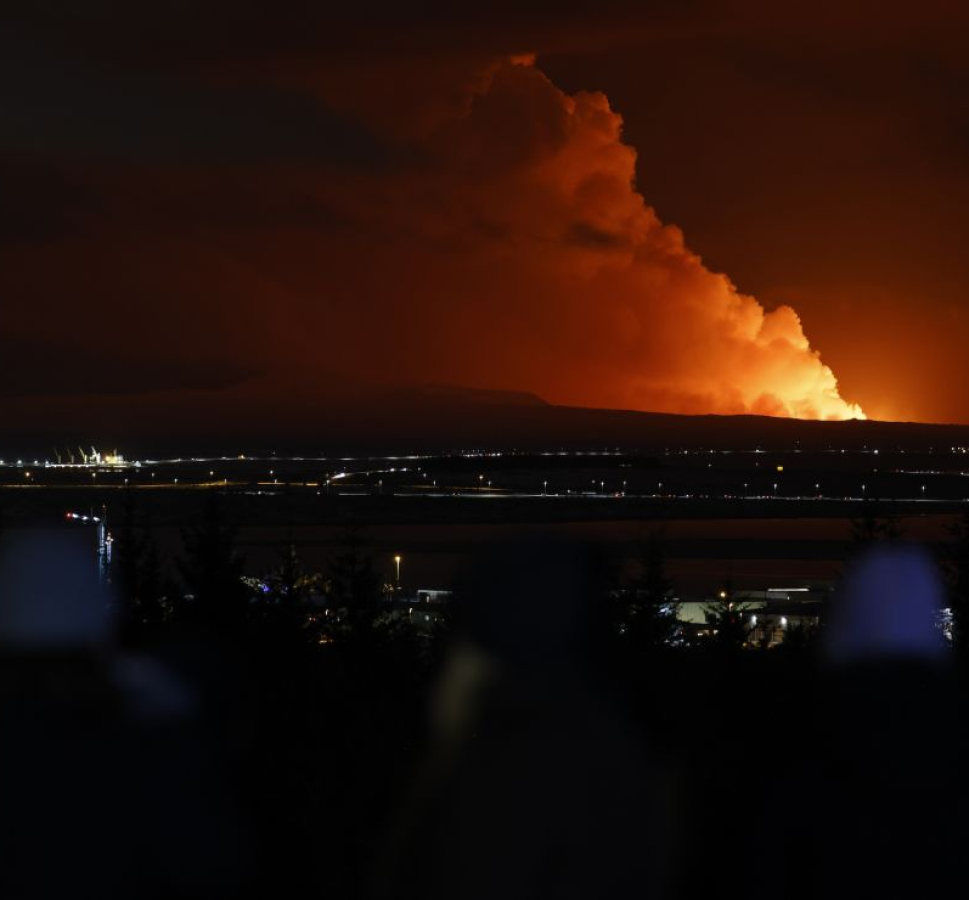
Vidir Reynisson, a senior police officer at the Civil Defence, described the eruption as a “quite a large event.”
A volcanic eruption on the Reykjanes peninsula in south-west Iceland has led to the evacuation of about 4,000 people from the fishing town of Grindavik. The eruption comes after weeks of intense earthquake activity in the region, prompting authorities to take precautionary measures.
The Icelandic Met Office reported that the eruption commenced north of Grindavik at 22:17 local time (23:17 WAT). The Blue Lagoon geothermal spa, a renowned tourist destination in the vicinity, was closed in response to the volcanic activity.
Images and videos circulating on social media captured the dramatic eruption, with lava spewing from the volcano only an hour after a notable earthquake swarm, indicating heightened seismic events. A coastguard helicopter has been dispatched to the area to assess the precise location and scale of the eruption.
The Met Office revealed that the eruption is situated approximately 4km (2.5 miles) northeast of Grindavik, and seismic activity is progressing towards the town. The crack in the volcano spans about 3.5km, and the lava is flowing at a rate of 100 to 200 cubic metres per second, significantly higher than previous eruptions in the Reykjanes peninsula.
Vidir Reynisson, a senior police officer at the Civil Defence, described the eruption as a “quite a large event,” indicating that lava is spreading in various directions from a substantial crack in the volcano.
Despite the eruption’s proximity to the capital city, Reykjavik, about 42 km away, there are currently no disruptions to flights to and from Iceland, according to Iceland’s foreign minister, Bjarni Benediktsson. He assured that international flight corridors remain open. The volcanic activity is visible from Reykjavik, where witnesses reported a vivid red illumination of half the sky in the direction of Grindavik.
One eyewitness in the city revealed that smoke was billowing into the air, and police issued warnings to the public to steer clear of the affected area. Prime Minister Katrin Jakobsdottir stated that the recently constructed defences would have a positive impact, expressing hope for the best despite the “significant event.”
President Gudni Johannesson emphasised that safeguarding lives remains the top priority, with efforts also focused on protecting structures. The eruption in 2010 from the Eyjafjallajokull volcano led to the closure of European airspace due to extensive ash clouds, resulting in substantial economic losses estimated between 1.5 billion and 2.5 billion euros.






